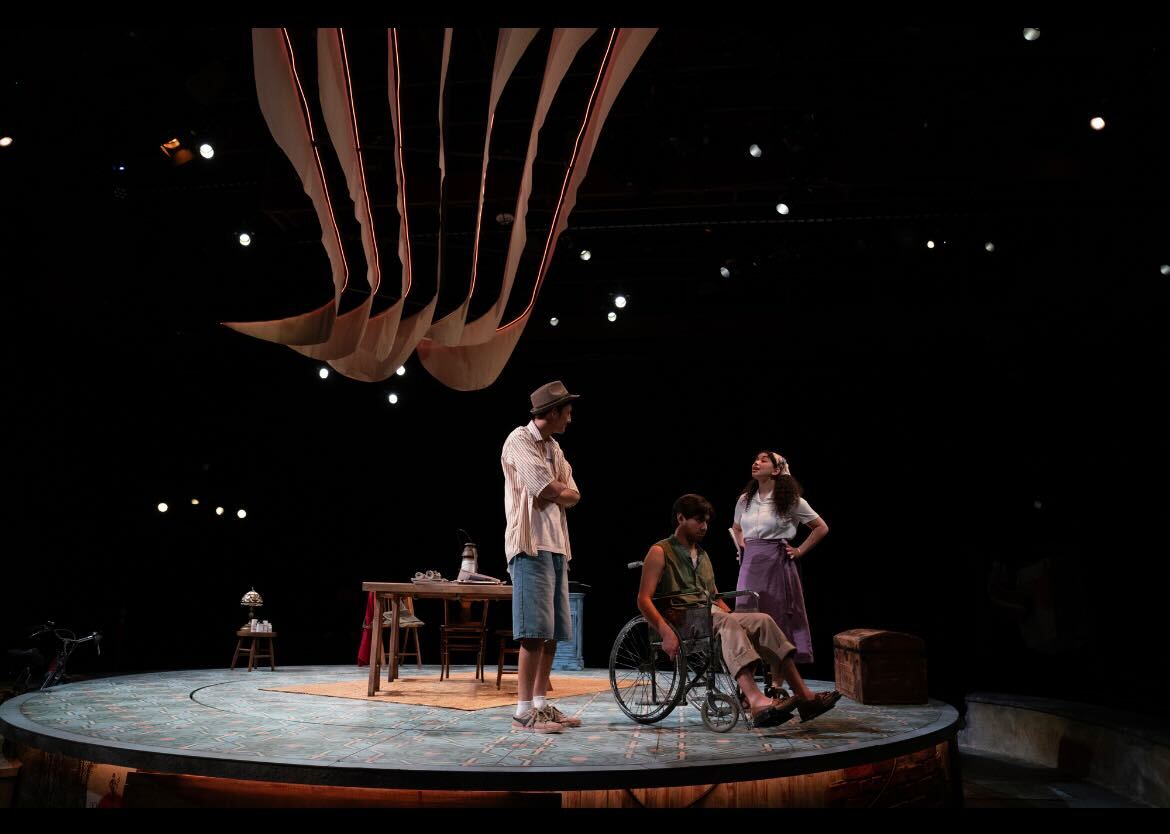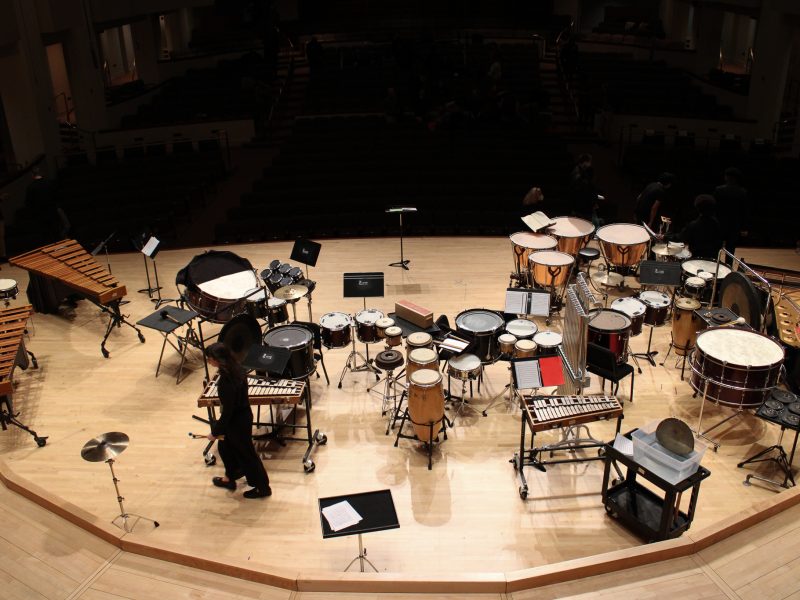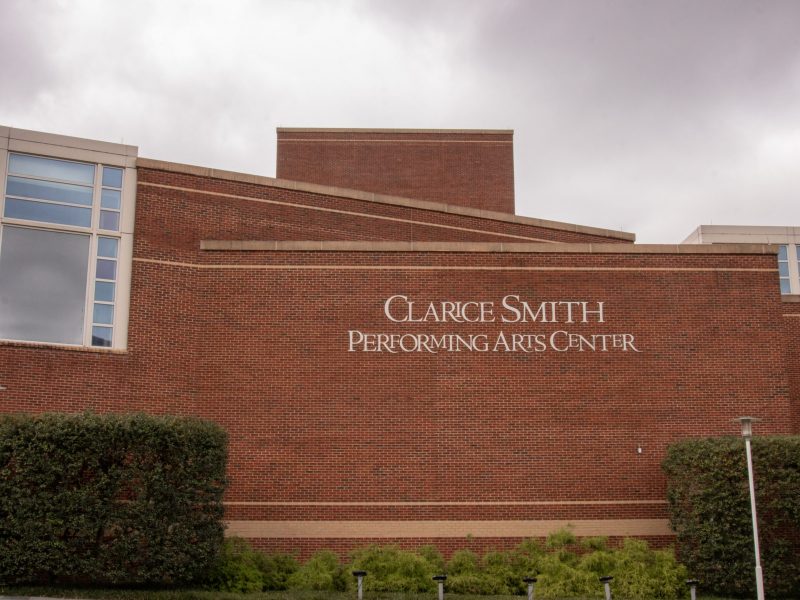The theatre, dance and performance studies school premiered A Bicycle Country on Friday night at The Clarice Smith Performing Arts Center, telling a story of the trials and tribulations of leaving Cuba.
The play centers around three Cuban friends, Julio, Pepe and Ines, in 1993 amid an economic crisis in Cuba known as the Special Period. The friends leave the country without aid, searching for freedom and asylum in the United States.
The play follows the trio’s treacherous escape and trip by raft to the United States from their home in Cuba, driving audience immersion with directorial choices.
Senior communications and theatre major Alexander Diaz-Lopez played Julio, whose self-will and realism grounded the group and brought the other characters back from their daydreams of the future.
“It’s interesting to see that journey where he’s finding himself in a really dark moment at the beginning of the play, but at the end, he’s kind of the one who keeps everyone else grounded,” Diaz-Lopez said.
Many production choices were intentionally made to enhance the story. Through a circular stage donned with colorful textiles alongside lighting that played with color and shadow, A Bicycle Country incorporated magical realism to enhance the performance.
The play utilized elements of magical realism, a genre popularized by Latin American writers that blurs realism and fantasy, to symbolize the physical tolls, mixed realities and hallucinations that can come with the long journey by sea to freedom.
[Survey Says SEE’s ‘Family Feud’ game night was a success]
Luis Garcia, a lighting and media graduate student and the lighting and the show’s projection designer, used varied, colorful lighting to heighten the play’s artistic choices for the audience.
“Lighting in particular is really helping set the time and place. Act one takes place in a house … so lighting’s role is to show the audience the intimacy of this house,” Garcia said. “When they start hallucinating is where we get to play with color and we get to play with how we open the world.”
With immigration still a pressing and relevant issue in the world today, Fatima Quander, the play’s director, found the play’s attitude towards immigration vital to today’s global context.
“I am a second generation [on] both sides of immigrant grandparents,” said Quander, who is a lecturer in the theatre, dance and performance studies school . “People forget to look at the ‘they’ as individual people that really are, more often than not, escaping life-or-death situations.”
Quander taught her students about A Bicycle Country for years before its premiere at The Clarice.
“I’ve never had a student who didn’t understand and connect and really be intrigued by what happens in this play,” she said.
[Cuco elevates bedroom pop in Hitchhiker EP]
A Bicycle Country provided insight into the treacherous journey to freedom from one’s home country and the intense emotions of fear, guilt and grief that come with hope for a better future.
“I’m really hoping that the audience is able to really immerse themselves in the story that we have created, but I also hope it becomes a call to action,” Diaz-Lopez said. “I think, we as a society, we easily target those who are immigrants and who search for a better life. I’m hoping the show really puts a face to the lives that are impacted by immigration.”



